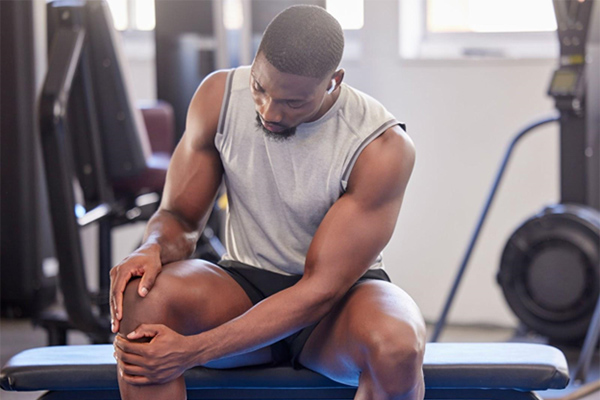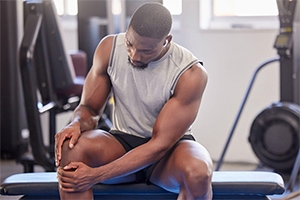
Arthritis isn’t just a concern for older adults —it’s a serious issue that affects millions of people, often earlier than expected. Among people younger than 45 years, osteoarthritis is more common among men than women.1 Yet, many men ignore the warning signs until the condition worsens. As we celebrate Men’s Health Month this June, it’s the perfect time to prioritize joint health. Here are the early signs men shouldn't brush off.
Persistent Joint Pain—Not Just Post-Workout Soreness
It’s easy to blame aching joints on a tough workout or long day on your feet. But if joint pain—especially in the hips or knees—lasts for more than a few days, or worsens with activity, it could be an early sign of arthritis. Unlike temporary soreness, arthritis pain doesn’t just go away with rest.
Stiffness That Lingers, Especially in the Morning
If your joints feel tight or stiff in the morning and it takes more than 30 minutes to loosen up, it could be a red flag. Morning stiffness is a common symptom of inflammatory arthritis and shouldn’t be ignored, especially if it's affecting your quality of life or daily activities.
Decreased Range of Motion in the Hips or Knees
Are your hips or knees not moving the way they used to? Difficulty bending, squatting, or climbing stairs may be a sign that arthritis is progressing. Men often compensate by limiting movement, which can worsen stiffness and reduce joint health over time.
Swelling or Warmth Around the Joints
Noticeable swelling or warmth in a joint, particularly the knee, can signal inflammation—a key symptom of arthritis. Even if the swelling is minor or comes and goes, it’s worth getting evaluated by a specialist.
Fatigue and General Discomfort
Persistent joint pain often leads to fatigue and decreased vitality. Noticing you're more tired than usual or feeling run down alongside joint discomfort could be a sign it’s time to take action.
Don’t Wait for the Pain to Get Worse
Identifying arthritis in its early stages can make a significant difference in your long-term joint health. Through a thorough evaluation, Dr. Noble can determine the underlying cause of your symptoms and recommend a personalized treatment plan tailored to your lifestyle and needs. Whether it involves physical therapy, medication, lifestyle adjustments, or advanced interventions, early and appropriate care can help preserve joint function, reduce discomfort, and keep you active and doing what you love.
AUTHOR: Andrew R. Noble MD is a board-certified orthopedic surgeon specializing in hip and knee replacement at Palm Beach Orthopedic Institute. Fellowship-trained at Harvard Medical School's Brigham and Women’s Hospital, Dr. Noble is recognized as a top doctor in his field. He is a member of the American Academy of Orthopaedic Surgeons (AAOS) and the American Association of Hip and Knee Surgeons (AAHKS), having published in The Journal of Bone and Joint Surgery and presented at prestigious national conferences.
Reference:



